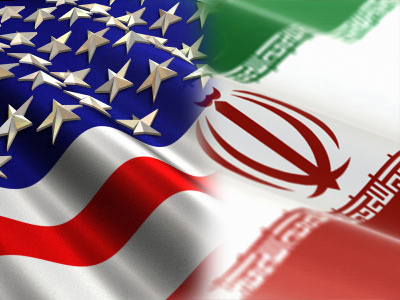US Won’t Waste Any More Time

- The US has attempted to negotiate with Iran several times in the past. During the Clinton presidency, Madeleine Albright, the Secretary of State, apologized for US interference in the 1953 coup in Iran and stated that the greatest damage this incident exerted on Iran was that it halted the democracy project in Iran.
- Later, during the George W. Bush administration, and following the Bam earthquake and the humanitarian disaster it led to, the US, while sending humanitarian aids to Iran, asked to send a high-ranking delegation to Iran for negotiations.
- But some who assumed this measure would be considered a success for the Khatami government, stated that the conditions for the presence of the US delegation in Iran were not suitable.
- Now, Obama is in his second presidential term and his hands are not as tied as before, for he does not need to attract lobbies and different groups, hence, he can take his positions with more determination.
-Therefore, if the nuclear issue is to be solved, the existing problems must be solved with the main player and not the sideline players.
- I believe that the US, both domestically and internationally, expects that, when proposing such offers, Iran’s answer will be positive, and if it is not, the Americans will make firm decisions.
- This means that the US intends to legitimize its measures and also prove its goodwill in proposing to negotiate with Iran, because in international relations, when a country asks for negotiations with a higher power, it is considered as belittling its personality; but when the higher power steps forward for negotiations, it is in fact trying to save the reputation of the other party. The US used the same method with China, and it requested negotiations instead of China.
- By stepping forward for negotiations, the US intends to not waste any more time with regard to Iran. It means that if the negotiations fail, it will then make a firm decision. The US attempts to show the public opinion of Iran and the international community that it has done whatever was necessary from a software perspective; thus, it is in a position now that it must make a firm decision and not allow this issue to be delayed any longer.
- When the negotiation takes place, the atmosphere will eliminate past illusions from the psychological aspect. Let’s assume that Iran accepts enrichment up to 20%; this is by itself considered as a victory, because the British Foreign Ministry had stated that we must not impose defeat or belittle the other party.
- You see that following Mrs. Clinton’s statement on the US’ readiness to negotiate with Iran, and prior to the reaction of Iranian officials, those individuals who have no responsibility in making decisions with regard to foreign policy took positions and strongly rejected this negotiation.
- It is possible that some positions are taken due to domestic political issues and not ideological ones. What are important are the opportunities and conditions, and perhaps there won’t be any other opportunity if we wait for Iran’s presidential election and the next president.
- Therefore, firm decisions must sometimes be made under limited conditions.
- I believe that if we are realistic and assess the issues with prudence and accurately evaluate the situation of the region and the world, we must decide to negotiate. But if we assume that the continuation of the crisis in Iran-US relations is to our benefit, we would be making a mistake and it would have further ramifications for our country.
- There are now two viewpoints with regard to the issue of negotiating with the US. Some groups still oppose these negotiations and some approve. This is while during the first years following the revolution, almost all groups opposed any kind of negotiation with the US, which of course was based on the conditions at the time.

